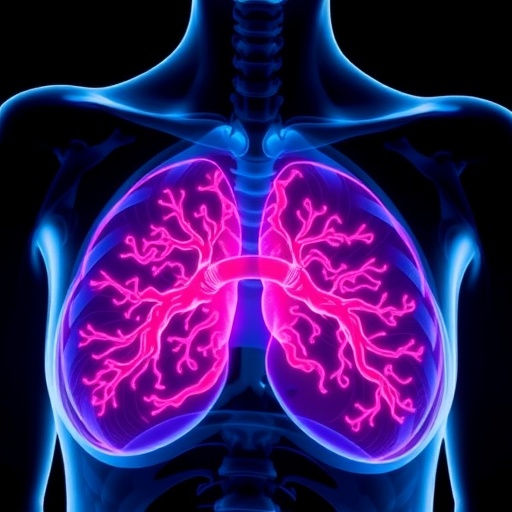A groundbreaking study emerging from the Icahn School of Medicine at Mount Sinai illuminates a promising new avenue in the battle against advanced triple-negative breast cancer (TNBC), a particularly aggressive subtype of breast malignancy notorious for its resistance to conventional treatments. Published recently in the esteemed journal Breast Cancer Research and Treatment, this randomized phase 2 clinical trial reveals that the integration of the targeted therapy everolimus with standard carboplatin chemotherapy significantly prolongs progression-free survival in patients grappling with this challenging disease.
Triple-negative breast cancer, characterized by the absence of estrogen receptor, progesterone receptor, and HER2 expression, accounts for roughly 10 to 15 percent of breast cancer diagnoses. Its aggressive nature and limited responsiveness to hormonal or HER2-targeted therapies render treatment options notably scarce and oftentimes ineffectual. This stark clinical reality underscores the urgent necessity of novel therapeutic strategies that can disrupt the molecular machinery driving TNBC progression.
Central to this study’s rationale is the role of the PTEN tumor suppressor gene, frequently lost or mutated in TNBC tumors. PTEN functions as a critical guardian of cellular homeostasis by restraining aberrant cell proliferation. Its absence unleashes unchecked activation of the mTOR signaling pathway—a pivotal cellular “growth switch” that fosters tumor expansion and metastatic potential. Everolimus, an mTOR inhibitor already approved for other malignancies, offers a mechanistic counterpunch by dampening this hyperactive pathway, thereby restraining cancer cell growth.
The trial enrolled patients with advanced TNBC who had undergone up to three prior lines of therapy, reflecting a heavily pretreated population often devoid of effective options. Participants were randomly assigned to receive either carboplatin alone, a platinum-based chemotherapeutic DNA-damaging agent with broad antitumor activity, or a combination of carboplatin plus everolimus. The results were compelling: those receiving the combination exhibited a remarkable 52 percent reduction in the risk of disease progression or death compared to those treated with carboplatin monotherapy.
Importantly, beyond efficacy, the combination regimen maintained a manageable safety profile. No unexpected adverse events emerged, and treatment tolerability appeared consistent with known profiles of the individual agents. This balance of enhanced therapeutic benefit and tolerability holds immense clinical promise, addressing a critical unmet need for patients with metastatic TNBC.
Dr. Amy Tiersten, Professor of Medicine in Hematology and Medical Oncology and senior author of the study, emphasized that the findings “suggest a new treatment paradigm that could potentially improve outcomes for patients suffering from this aggressive breast cancer subtype.” She further noted the imperative for subsequent phase 3 trials to corroborate these results, laying the groundwork for regulatory approval and clinical adoption.
Delving deeper into molecular oncology, TNBC’s lack of hormone receptors precludes use of targeted endocrine therapies, rendering chemotherapy the mainstay treatment despite its limited efficacy and considerable toxicity. The discovery that mTOR inhibition can potentiate chemotherapy represents a refined therapeutic tactic aimed at hindering tumor cell proliferation at a signaling level while leveraging DNA damage via carboplatin molecules.
The findings resonate within the broader landscape of precision oncology, where unraveling tumor-specific vulnerabilities facilitates tailored treatment combinations that maximize efficacy while minimizing collateral damage. The integration of everolimus confronts the aberrant signaling cascade propelling tumor growth, exemplifying how targeted agents can resensitize resistant tumors to cytotoxic therapies.
Experts underscore that the study’s patient cohort, characterized by prior treatment resistance and advanced disease, typifies a population in dire need of innovation. That substantial clinical benefit was achieved in this context advances hope for altering the dismal prognosis typically associated with metastatic TNBC, which historically manifests median survival measured in months.
Future investigations will need to elucidate biomarkers predictive of response to everolimus-carboplatin therapy to enable optimal patient selection. Molecular profiling might identify specific genetic or proteomic signatures corresponding to heightened reliance on mTOR signaling, thereby refining therapeutic indices and sparing non-responders from unnecessary toxicity.
The study’s underpinning translational research highlights the synergy between basic scientific insights—identifying PTEN loss and mTOR pathway activation—and clinical application through rational drug combination designs. This bench-to-bedside approach exemplifies the cutting-edge paradigm necessary to confront formidable cancers effectively.
While additional larger-scale phase 3 studies are paramount to confirm these promising phase 2 results, the current data inject a dose of optimism for patients and clinicians alike. Should efficacy be validated, carboplatin coupled with everolimus may soon expand the armamentarium against TNBC, potentially shifting treatment standards from empirical chemotherapy to more nuanced, pathway-informed regimens.
Furthermore, the role of pharmaceutical partners such as Novartis in providing investigational drugs exemplifies the collaborative ecosystem essential for advancing oncology therapeutics from concept to clinic, underscoring the intersection of academic innovation and industry support.
As research continues to unfurl the complexities of TNBC biology and resistance mechanisms, studies like this propel the field closer to tailored, effective, and durable treatment solutions. The Icahn School of Medicine at Mount Sinai thus contributes a pivotal chapter in the evolving narrative aimed at conquering one of the most vexing subtypes of breast cancer.
Subject of Research: People
Article Title: (Not provided)
News Publication Date: August 20, 2025
Web References:
- https://www.cancer.org/cancer/types/breast-cancer/about/types-of-breast-cancer/triple-negative.html
- https://link.springer.com/article/10.1007/s10549-025-07802-7
- http://dx.doi.org/10.1007/s10549-025-07802-7
- https://physicians.mountsinai.org/videos/ramon-parsons-md-phd-explains-pten-and-cancer
References:
- Breast Cancer Research and Treatment, DOI: 10.1007/s10549-025-07802-7
Keywords: Breast cancer, Cancer treatments




